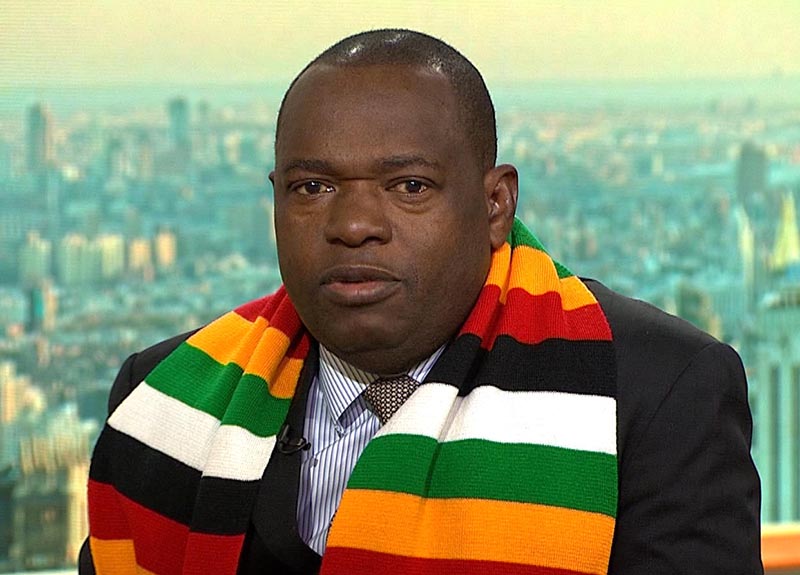Honouring property rights confirms Zim’s commitment towards economic diplomacy
The Government of Zimbabwe signed the US$3.5 billion Global Compensation Deed with representatives of farmers whose land was acquired during the fast-track Land Reform Programme of the late 1990s and 2000s
One of the major impediments to Foreign Direct Investment (FDI) flows into Zimbabwe has been a lack of investor confidence.
This has emanated, in part, from the perceived failure by the Government to fully respect property rights: and, more specifically, Government’s failure to honour commitments made under signed and ratified Bilateral Promotion and Protection of Investment Agreements (BIPPA’s).
Since assuming office in November, 2017, the New Dispensation has marked a significant break from this recent past by making deliberate policy choices to clearly demonstrate the country’s commitment to honouring its international obligations. Part of this endeavour includes a determination to ratify all outstanding BIPPAs.
Since the advent of the New Dispensation, the Ministry of Foreign Affairs and International Trade has focused on building a solid foundation for the effective promotion of international trade and investment. These efforts have included the successful passage through Parliament of six of the 18 outstanding BIPPAs.
Our approach has been to submit these Agreements in batches of six. The remaining 12 are currently undergoing internal legal processes along with trade agreements recently concluded with various other trading partners. Respect for property rights, the rule of law and more open, more transparent governance are core elements of the New Dispensation’s commitment to the people of Zimbabwe. They are fundamental to the attainment of Vision 2030. And they are essential to the success of President Mnangagwa’s policy of engagement and re-engagement and the return of Zimbabwe to its rightful place in the broader community of nations.
The Constitution, and many of its subsidiary laws seek to protect property rights; and the rights of people to acquire, use, and freely dispose of property.
With regard to foreign investment, Section 110(4) provides that the President may conclude or execute conventions, treaties and agreements with foreign states and governments as well as with international organisations.
Section 327 stipulates, however, that any such international treaty does not bind the Republic until or unless it has been approved by Parliament and until or unless it has been incorporated into domestic law through an Act of Parliament.
This is precisely the exercise that our Ministry is currently spearheading through Parliament: with a view to correcting errors committed under the previous administration, to honouring our legal and constitutional obligations and, in turn, to improving the attractiveness of Zimbabwe as a secure and reliable investment destination.
The recent approval by Parliament that six outstanding BIPPA’s should be ratified is, therefore, something of a milestone and provides yet further validation of government’s determination to change trajectory, to prioritise economic growth and development and, within that context, to actively re-brand Zimbabwe as being fully Open for Business.
The six BIPPA’s approved for ratification include those signed with the United Arab Emirates, the United States of America, Sweden, the Czech Republic, Thailand and the Republic of Korea.
I am very confident that the remaining 12 BIPPA’s will shortly be brought before Parliament and that they too will receive the Legislature’s approval for ratification — further cementing government’s commitment to reform.
On July 29, 2020, in the same spirit of honouring our domestic and international obligations with regard to the respect of property rights, the Government of Zimbabwe signed the US$3.5 billion Global Compensation Deed with representatives of the farmers whose land was acquired during the Fast Track Land Reform Programme of the late 1990’s and 2000’s.
With specific regard to land covered by BIPPA’s, Section 295 of the Constitution makes it clear that individuals whose land was acquired under the Land Reform Programme are entitled to compensation, both for improvements effected upon the land as well as for the value of the land itself.
This breakthrough development not only brings closure to a long-running and deeply divisive chapter of our nation’s history, it also addresses core aspects of our differences with a number of our western detractors and, again, illustrates the New Dispensation’s sincerity with regard to correcting errors of the past, to actively engaging those who, previously, have distanced themselves from us and encouraging them to join us as, together with existing partners, we set the country on a new path of inclusive growth and sustainable development.
These developments also align perfectly with government’s ongoing efforts to address Ease of Doing Business and Ease of Doing Export Business constraints. Full respect for property rights, rule of law and engendering full confidence in the country’s legal system to effectively promote and protect those rights are paramount to those endeavours.
We have made much progress. We will continue to build on these successes, and to rebuild confidence and trust in our country as a safe and dependable trade and investment partner for all who would wish to do business with us.
SB Moyo is Zimbabwe’s Minister for Foreign Affairs and International Trade.-herald.cl.zw










